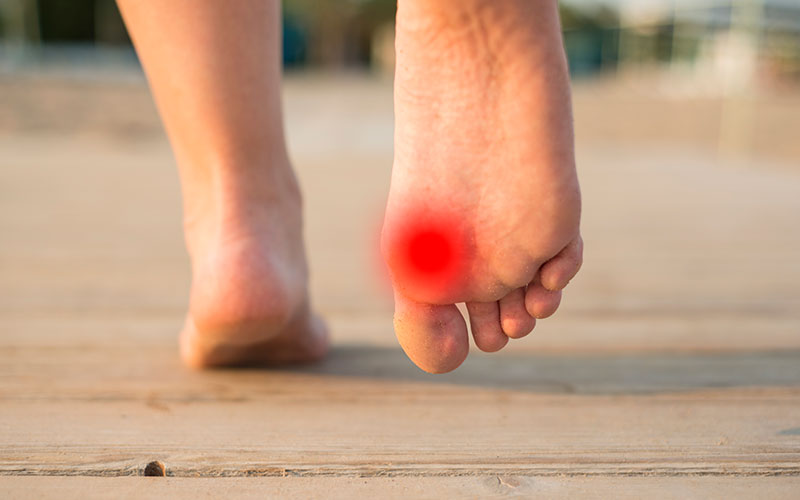Plantar Warts (Verruca Plantaris)
Plantar warts develop on the soles of your feet. They may be annoying and unsightly at first and can quickly become a source of pain and discomfort as they grow and spread. These skin growths most commonly occur on the weight-bearing pads of your feet.

At Northwest Surgical Specialists, we offer foot and ankle care for adults, senior citizens, and children of all ages. Our team will be able to correctly diagnose and effectively treat your plantar warts so you can live free from discomfort and pain.
What is a plantar wart?
Plantar warts are small growths on the skin of the foot that develop when the skin is infected by a virus. They can develop anywhere on the foot but are typically found on the plantar (bottom) side of the foot. They are most common in children, adolescents, and seniors and are caused by direct contact with the human papillomavirus (HPV), which infects the epidermis. It is the same virus that is responsible for causing warts elsewhere on the body.
What are the different types of plantar warts?
There are two types:
- Solitary wart – this is a single wart that will over time increase in size and may multiply.
- Mosaic warts – these are clusters of a number of small warts that grow close together.
A doctor that specializes in foot care is best positioned to give you an accurate diagnosis as plantar warts are often mistaken for calluses or corns. If you think that you have a plantar wart, check whether it:
- Interrupts the skin lines – unlike a callus where skin lines continue through the hard dead skin, a wart interrupts the skin lines.
- Has small seed-like black dots – the dots indicate capillary blood supply, and a callus has no dots (because there is no blood supply), while a plantar wart does.
- Is painful when squeezed side to side – compared to a callus that is painful when pushed directly.
What are the treatment options?
Plantar warts can become very painful over time if left untreated, which is why we recommend that you make an appointment with one of our specialists to effectively resolve the condition. The doctor will examine your foot, looking for signs and symptoms of a wart.
It is important to book a consultation immediately if you have:
- A wart that changes appearance or color
- Bleeding from the wart
- Multiple warts
- Pre-existing diabetes
- Poor sensation in your feet
- A weakened immune system
There are a number of different topical and oral treatment options available, including the application of salicylic acid or cryotherapy (freezing). In some cases, it may be necessary to undergo immune therapy, laser treatment, or minor surgery.
*Although there are many folk remedies for the treatment of warts, most are not based on medical proof and may do more harm than good.
Get help from our team of professionals
Our multi-medical practice doctors have the experience and expertise to correctly diagnose your condition as well as determining an effective treatment intervention. To get in touch, please give us a call on 847-885-9525 or request an appointment through the website.